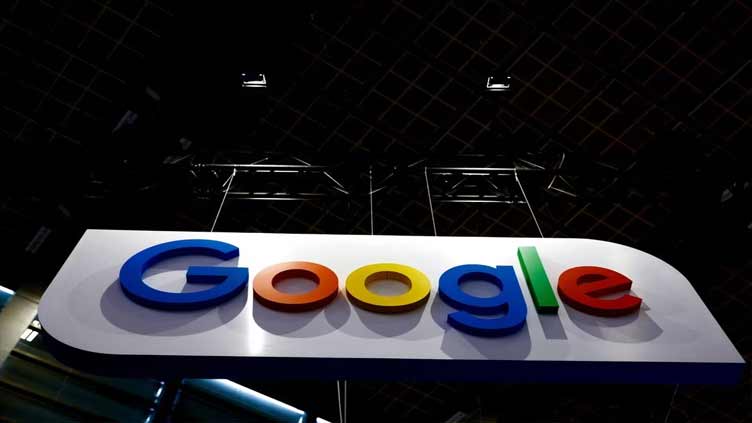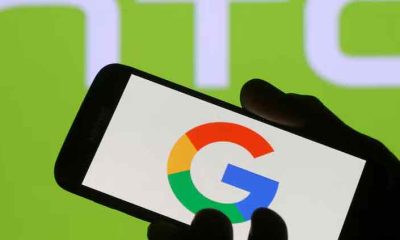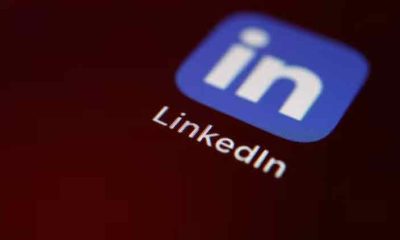Tech
Google argues quality kept its search on top, defends billions paid

Google argued on Tuesday the U.S. was wrong to say the search and advertising giant broke the law to hold onto its massive market share, noting its search engine was wildly popular because of its quality and that dissatisfied users could switch with “a few easy clicks.”
The Justice Department has accused Alphabet’s Google (GOOGL.O) of paying $10 billion annually to device makers like Apple (AAPL.O), wireless companies like AT&T (T.N), and browser makers like Mozilla to keep its search engine’s market share at around 90%.
Google’s search engine is a key part of its business, driving advertising sales and other areas of profit for the world’s fourth most valuable company.
“This case is about the future of the internet,” said Kenneth Dintzer, arguing for the Justice Department that Google began in 2010 to illegally maintain its monopoly.
But Google’s lawyer, John Schmidtlein, said the payments compensate partners for the work of making sure that the software gets timely security updates and other maintenance.
“Users today have more search options and more ways to access information online than ever before,” Schmidtlein added. He went on to say Google won competitions that Apple and Mozilla held to pick the best search engines.
Unhappy consumers, Google’s Schmidtlein argued, need just “a few easy clicks” to replace the Google app from their devices or call up Microsoft’s (MSFT.O) Bing, Yahoo or DuckDuckGo in a browser to use an alternative search engine.
The Justice Department’s Kenneth Dintzer argued earlier on Tuesday that, in addition to the payments, Google manipulated auctions for ads placed on the internet in order to raise prices for advertisers.
‘SCALE MATTERS’
“Defaults are powerful, scale matters and Google illegally maintained a monopoly for more than a decade,” said Dintzer. The consequences are that without serious competition, Google innovated less and paid less attention to other concerns like privacy, he said.
Dintzer also said the department found evidence that Google had taken steps to protect communications about the payments it made to companies like Apple. “They knew these agreements crossed antitrust lines,” he said.
He showed a chat where Google CEO Sundar Pichai asked for the history function to be turned off.
William Cavanaugh, speaking for states led by Colorado, focused on allegations that Google balked at giving Microsoft access to features on Google Marketing Platform SA360, arguing that it did so for financial reasons.
The government’s first witness was Google economist Hal Varian, who was asked about discussions inside the company in the mid- and early 2000s about the importance of Google becoming the default on home pages.
“I think in general having the default is valuable,” he said.
Opening arguments in the trial occurred before a packed federal court in Washington. The trial is expected to last up to 10 weeks, with two phases. In the first, Judge Amit Mehta will decide if Google has broken antitrust law in how it manages search and search advertising.
If Google is found to have broken the law, Judge Mehta will then decide how best to resolve it. He may decide simply to order Google to stop practices he has found to be illegal or he may order Google to sell assets.
The government, in its complaint, asked for “structural relief as needed” but did not define it.
The legal fight has huge implications for Big Tech, which has been accused of buying or strangling small competitors but has insulated itself against many accusations of breaking antitrust law because the services the companies provide to users are free, as in the case of Google, or inexpensive, as in the case of Amazon.com (AMZN.O).
Previous major antitrust trials include Microsoft, filed in 1998, and AT&T, filed in 1974. The AT&T breakup in 1982 is credited with paving the way for the modern cell phone industry, while the fight with Microsoft is credited with opening space for Google and others on the internet.
Tech
OpenAI, SoftBank each commit 19bn dollars to Stargate AI data center

OpenAI and Japanese conglomerate SoftBank (9984.T) will each commit $19 billion to fund Stargate, a joint venture to develop data centers for artificial intelligence in the U.S., the Information reported on Wednesday.
The ChatGPT maker will hold a 40% interest in Stargate, and would act as an extension of OpenAI, the report said, citing OpenAI CEO Sam Altman speaking to colleagues. His comments imply SoftBank would also have a 40% interest, the report added.
OpenAI and SoftBank did not immediately respond to Reuters’ requests for comment.
On Tuesday, U.S. President Donald Trump announced that OpenAI, SoftBank Group and Oracle (ORCL.N) will unveil Stargate and invest $500 billion over the next four years to help the United States stay ahead of China and other rivals in the global AI race.
Stargate will initially deploy $100 billion and the rest of the funding is expected over the next four years. The project is being led by SoftBank and OpenAI.
Tech
Taiwan’s HTC to sell part of XR unit to Google for 250mn dollars

Taiwan’s HTC (2498.TW) said on Thursday it will sell part of its unit for extended reality (XR) headsets and glasses to Google (GOOGL.O) for $250 million and transfer some of its employees to the U.S. company.
The transaction is expected to close in the first quarter of this year, HTC said.
The two companies will also explore further collaboration opportunities, HTC added.
Google said in a separate statement that the deal will accelerate the development of the Android XR platform and strengthen the ecosystem for headsets and glasses.
Lu Chia-te, HTC vice president and general counsel, told reporters the company had granted its intellectual property rights to Google as a non-exclusive license.
“Therefore, this is not a buyout nor an exclusive licence. In the future, HTC will still retain the ability to use, utilise, and even further develop it without any restrictions,” he said.
Tech
Microsoft’s LinkedIn sued for disclosing customer information to train AI models

Microsoft’s (MSFT.O) LinkedIn has been sued by Premium customers who said the business-focused social media platform disclosed their private messages to third parties without permission to train generative artificial intelligence models.
According to a proposed class action filed on Tuesday night on behalf of millions of LinkedIn Premium customers, LinkedIn quietly introduced a privacy setting last August that let users enable or disable the sharing of their personal data.
Customers said LinkedIn then discreetly updated its privacy policy on Sept. 18 to say data could be used to train AI models, and in a “frequently asked questions” hyperlink said opting out “does not affect training that has already taken place.”
This attempt to “cover its tracks” suggests LinkedIn was fully aware it violated customers’ privacy and its promise to use personal data only to support and improve its platform, in order to minimize public scrutiny and legal fallout, the complaint said.
The lawsuit was filed in the San Jose, California, federal court on behalf of LinkedIn Premium customers who sent or received InMail messages, and whose private information was disclosed to third parties for AI training before Sept. 18.
It seeks unspecified damages for breach of contract and violations of California’s unfair competition law, and $1,000 per person for violations of the federal Stored Communications Act.
A lawyer for Prince Harry on Wednesday said the Duke of Sussex had reached a settlement with Rupert Murdoch’s news conglomerate.
LinkedIn said in a statement: “These are false claims with no merit.”
A lawyer for the plaintiffs had no immediate additional comment.
The lawsuit was filed several hours after U.S. President Donald Trump announced a joint venture among Microsoft-backed OpenAI, Oracle (ORCL.N) and SoftBank (9984.T), with a potential $500 billion of investment, to build AI infrastructure in the United States.
-

 Business2 months ago
Business2 months agoAuto industry’s shift toward EVs is expected to go on despite Trump threat to kill tax credits
-

 Entertainment3 months ago
Entertainment3 months agoBeyoncé leads the 2025 Grammy noms, becoming the most nominated artist in the show’s history
-

 Business3 months ago
Business3 months agoWall Street cruises toward the close of its best week in a year
-

 pakistan3 months ago
pakistan3 months agoPM Shehbaz terms promotion of foreign investment as top priority
-

 World2 months ago
World2 months agoSix Israeli troops killed, deadly strikes in Lebanon
-

 Entertainment2 months ago
Entertainment2 months agoMovie Review: ‘Red One’ tries to supersize the Christmas movie
-

 Business2 months ago
Business2 months agoWall Street gains ground as it notches a winning week and another Dow record
-

 Sports1 month ago
Sports1 month agoSouthampton set to sign Juric as new manager

















